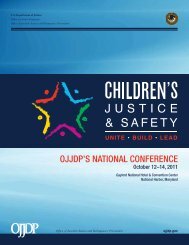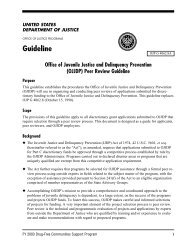OJJDP Family Listening Sessions: Executive Summary - Office of ...
OJJDP Family Listening Sessions: Executive Summary - Office of ...
OJJDP Family Listening Sessions: Executive Summary - Office of ...
Create successful ePaper yourself
Turn your PDF publications into a flip-book with our unique Google optimized e-Paper software.
Questions and Responses<br />
After the introductions <strong>of</strong> participants and listeners, Sue Hoag-Badeau outlined four main topic<br />
areas for the group and Jessica Sandoval <strong>of</strong> CFYJ facilitated the discussion <strong>of</strong> each topic:<br />
1. What was your first involvement with the system<br />
2. What was your child’s experience with the system Were all your needs met<br />
3. What was your family’s experience with the system Were your needs met and your rights<br />
respected<br />
4. Was there aftercare; i.e., what happened when your child was no longer in the system Did<br />
he or she receive support<br />
Based on these questions, family members provided insight on a range <strong>of</strong> issues related to their<br />
experience with the juvenile and adult criminal justice systems, including:<br />
• Consequences <strong>of</strong> trying and detaining youth in the adult system.<br />
• Lack <strong>of</strong> community-based alternatives to detention and incarceration.<br />
• Lack <strong>of</strong> information about the process and what is happening to youth in custody.<br />
• Barriers to maintaining family or parent-child relationships.<br />
• Lack <strong>of</strong> and barriers to youth obtaining needed services.<br />
Summaries <strong>of</strong> the participants’ responses and representative comments follow each <strong>of</strong> the<br />
questions below.<br />
Question 1—Involvement With the System<br />
Think about when your child and your family first got involved with the system. What did<br />
you expect it to be like and how was it different<br />
Parents stated that they expected more support from the juvenile justice systems they and their<br />
children encountered. Specifically, they expected more transparency; better direction about their<br />
rights, choices, and the overall process; more and better resources to provide support and<br />
guidance; greater access to their child throughout the process; and proper representation. Several<br />
participants talked about missed early warning signs in their children relating to educational and


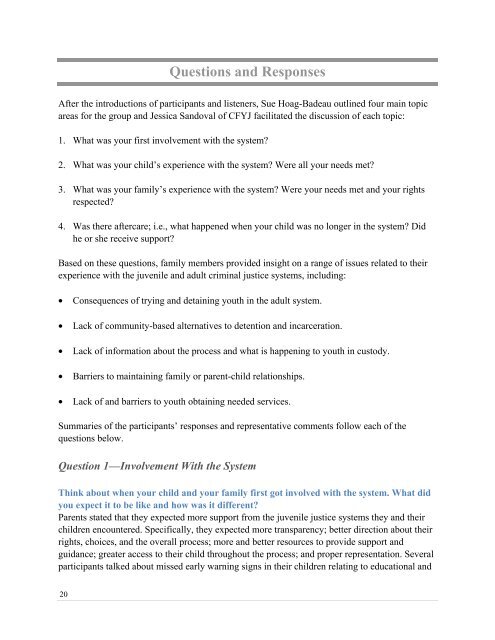
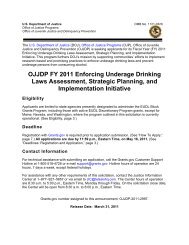
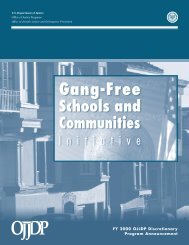
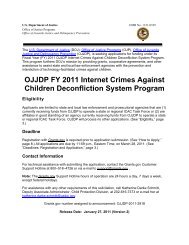
![Chapter 5 [PDF] - Office of Juvenile Justice and Delinquency ...](https://img.yumpu.com/46584340/1/190x245/chapter-5-pdf-office-of-juvenile-justice-and-delinquency-.jpg?quality=85)




